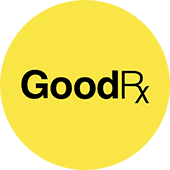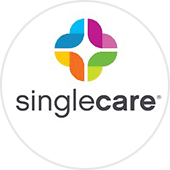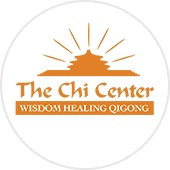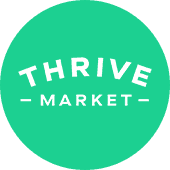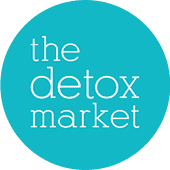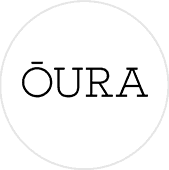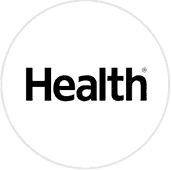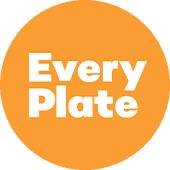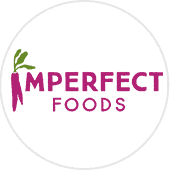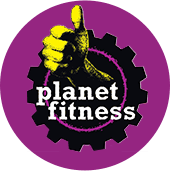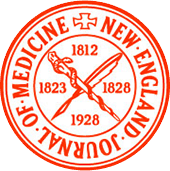Everyone wants to know: what is the one thing I should do to optimize my health and prevent disease (at the lowest possible cost)?
While there are plenty of legitimate ways to protect your health, the #1 thing you can do to prevent all disease is: optimize your nutrition.
The crucial role nutrition plays in health creation isn’t breaking news, and it may seem simple enough…until you start researching what “optimal” nutrition looks like. Which could lead you down a dark, confusing rabbit hole with no foreseeable way out.
You may learn from one expert that calorie counting is still king, while another celebrity doctor insists carbs are the enemy and you should count those instead.
Meanwhile, a popular health blogger tells you to ditch grains completely, and a best-selling author swears that approach is too extreme and gluten-free is the way to go.
Then there’s the question of meat…should you eat it? If so, how much and what types? Or is it best to go plant-based, vegan, vegetarian or raw?
The amount of conflicting advice out there is enough to make anyone want to give up and eat a whole pint of ice cream instead.
And while well-meaning experts have made the basic principles of eating right complicated…the truth is it doesn’t have to be.
Eating healing foods is inherently simple. And deep down, you’ve always known how to eat sensibly.
In today’s article we’ll reveal exactly how to start optimizing your nutrition in 7 simple steps without going on an extreme diet, eliminating entire food groups, spending a fortune or turning you life upside down.
Step 1: Focus on Real, Whole, Unprocessed Foods
It doesn’t get much easier than this. Yet, all the conflicting advice out there tends to complicate this simple principle.
If you’re confused about what whole foods are, you’re not alone. Here’s the gist: eat a lot less of anything that comes out of a bag, box, can or the middle aisles of the supermarket, and eat more of anything unpackaged and unprocessed (packaged fresh produce is OK) on the periphery of the store.
This includes plenty of fresh vegetables, fruits, nuts, seeds, meats, proteins and moderate amounts of whole gluten-free grains like brown rice, quinoa, millet, etc.
Why gluten-free grains and not whole grains?
With autoimmune and chronic conditions at an all-time high, gluten is best avoided if you’re dealing with a recurring health condition.
If you’re feeling great and have no ailments, you may do fine with moderate amounts of whole, unprocessed grains.
What about dairy?
We’ll cover that in step 6…
Step 2: Increase Awareness About Your Carb Intake
Note we did not say: eat a low-carb or no-carb diet.
While a carb-restrictive diet can be beneficial for certain people dealing with certain conditions, it’s not for everyone.
Rather, the reason we recommend becoming more aware of your carb consumption, is because most people consume way too many sugary empty calories from carbohydrate-rich snack foods.
Some areas to cut back on include: sugary drinks (like sodas, juices, etc.), snack foods with no nutritional value like chips, huge portions of processed grains (like premade bread, bagels, big bowls of pasta, etc.), and candies, chocolates and desserts.
Again, carbs aren’t your enemy!
In fact, healthy carbs, like those found in vegetables, fruits and certain grains, have incredible healing nutrients for our brains, guts, mood and more.
The point is to cut back on empty carbs so you have more room for the truly nutritious stuff.
Step 3: Rethink Sweeteners
This goes hand-in-hand with cutting back on empty carbohydrates, as people often switch to artificial sweeteners to help curb their carb cravings.
This is a HUGE mistake as artificial sweeteners have been linked to a host of dangerous health conditions, including increasing cravings for unhealthy foods, raising your risk of heart attack and increasing your body mass (to name but a few)[note]https://www.sciencedaily.com/releases/2017/07/170717091043.htm[/note].
Better, truly natural options for replacing sugar in your diet include stevia and non-artificial stevia blends for diabetics, and small amounts of raw honey, coconut sugar and maple syrup for those without diabetes.
And remember, fresh, unprocessed fruit is a wonderful option for satisfying your sweet tooth.
Packed with natural sugars, fiber, water and key nutrients, 1-2 sensible servings of fruit per day (1 cup per serving or so) can be game-changing in helping you kick sugar addiction while increasing nutrient uptake.
Step 4: Eat Your Probiotics
While probiotic supplements are all-the-rage, you may not need to spend extra on them if you eat enough cultured foods.
Cultured or “pickled” foods like sauerkraut, real pickles, yogurt, kefir, kim chi, real sourdough bread and kombucha provide a wealth of immune-enhancing probiotics, prebiotics, enzymes and nutrients.
They are truly one of the best superfoods available for supporting overall health and optimizing nutrition…and they’re affordable too.
How much should you eat per day?
Treat cultured foods like a condiment or elixir, taking a little bit with 1-2 meals a day (no need to overdo it).
Step 5: In the Beginning, Focus More on Nutrients Than Portions
While portions do count, nutrients matter more…especially when you’re just starting out optimizing your nutrition.
Therefore, aim to fill your plate with whole, unprocessed foods focusing on vegetables, fruits, protein, nuts and healthy fats.
Produce should take up the majority of your plate, followed by healthy proteins like organic meats and beans, and sensible amounts of healthy fats like olive oil, coconut oil, nuts and seeds.
If grains agree with you, aim for 1-2 servings of gluten-free, unprocessed whole grains per day. If you don’t have a chronic or autoimmune disease, then whole, unprocessed grains with gluten may be fine.
Keep in mind, the makers of processed foods make it their business to create foods that keep you coming back for more.
They do this by adding subtle ingredients like flavor-enhancers, extra sugar, salt and fat and other bizarre food-like, brain-altering substances to keep you hooked and hungry for more.
MSG is a perfect example of this, and yet it’s freely used in nearly every mainstream processed food product on the market. Even those that appear wholesome.
Therefore, if you stick with unprocessed foods…even if you’re not perfect about it…you’ll naturally, gradually begin to eat less. It really is that simple.
Step 6: Experiment with Dairy
Dairy can be one of the most confusing foods to try and figure out within a optimal nutrition plan.
On the one hand, we’ve all be taught since childhood that milk builds strong bones. And recent research touts raw milk from pasture-raised cows as a born-again superfood.
On the other hand, an estimated 50 million Americans are lactose intolerant[note]https://uamshealth.com/news/multimedia/herestoyourhealth/lactoseintolerance/50millionamericansarelactoseintolerant2/[/note], with thousands of others reporting sensitivity to some, or all, dairy products.
So, what should you do about dairy in your diet? Experiment and pay attention.
How do you feel when you eat regular dairy from cows? Do you feel any different if you eat organic dairy? How about raw or pasture-raised? What about cultured dairy products?
If you get congested, break out in acne or a rash or experience digestive trouble with cow’s milk, how do you feel with goat’s milk or sheep’s milk?
By paying careful and honest attention, you can easily figure out whether dairy should be a regular part of your diet.
Step 7: Keep These 5 Foods At the Core of Your Diet
- Vegetables of all types, the more colors the better
- Fruits—1-2 servings per day
- Nuts and seeds—a handful or two a day
- Protein—try to get some lean, healthy protein at every meal
- Healthy Fats—coconut oil, extra virgin olive oil, avocado oil, butter (for those without dairy sensitivities) and fish oil are all stellar
Optimizing your nutrition really can be this simple! And, we’d wager you always kNew how to eat right, you just forgot or got distracted along the way.
The key is to take it one step at a time and be gentle with yourself. Change takes time and you’ll do yourself no favors by becoming a food-drill-Sargent (we have enough “food police officers” out there already).
Instead, shoot for the old 80/20 rule: eat using these guidelines at least 80% of the time and, unless you’re dealing with a chronic conditions that requires a specific eating plan, cut yourself a little slack the other 20% of the time.
To recap:
- Focus on real, whole unprocessed foods—if it comes in a box, bag or container, choose an unprocessed, unpackaged alternative
- Increase awareness about your carb intake—with a special focus on empty carbs and sugar
- Rethink sweeteners—artificial sweeteners are no one’s friend, especially with so many natural options available
- Eat your probotics—a little cultured food everyday can change your life and save you money on supplements
- Focus on nutrients over portions—as you eat more nutrient-dense, unprocessed food, you will naturally crave less food overall
- Experiment with dairy—and discover if it’s a productive food for your body, or not
- Keep vegetables, fruits, nuts and seeds, protein and healthy fats at the core of your diet
If you need help with nutrition accountability, a special dietary or health concern or would like a more individualized approach we can help.
Check out our kNew Health membership program for details and best of luck optimizing your nutrition in the days, weeks and months to come.
-The kNew Health Team
References:







